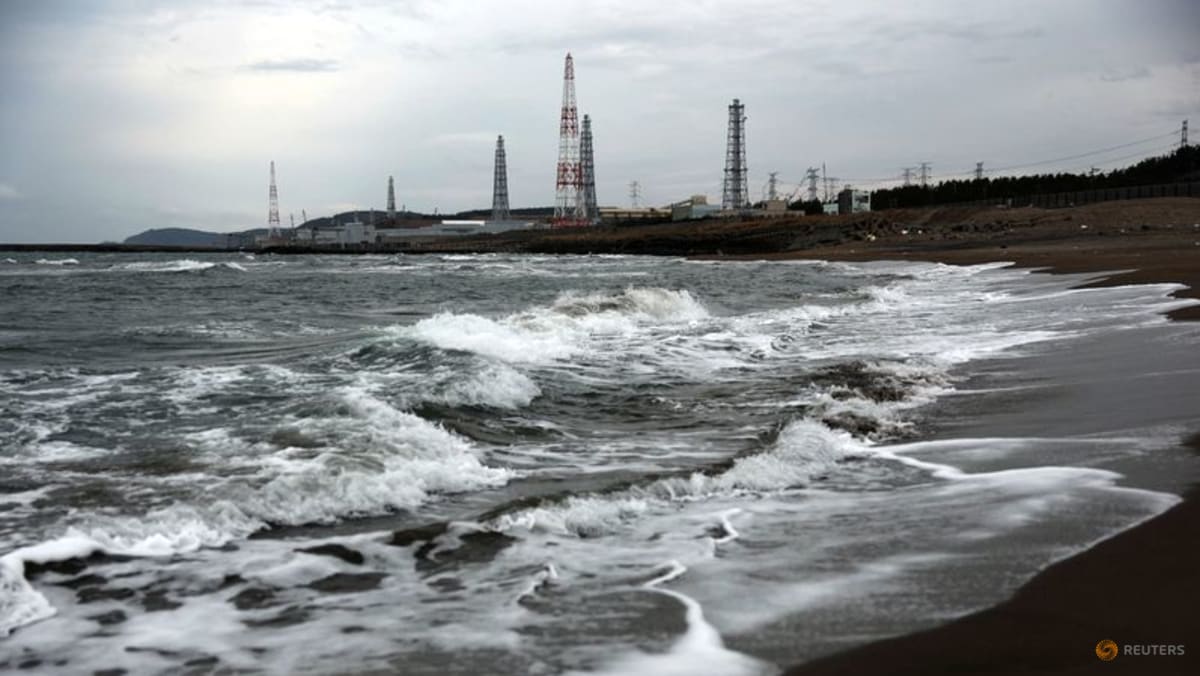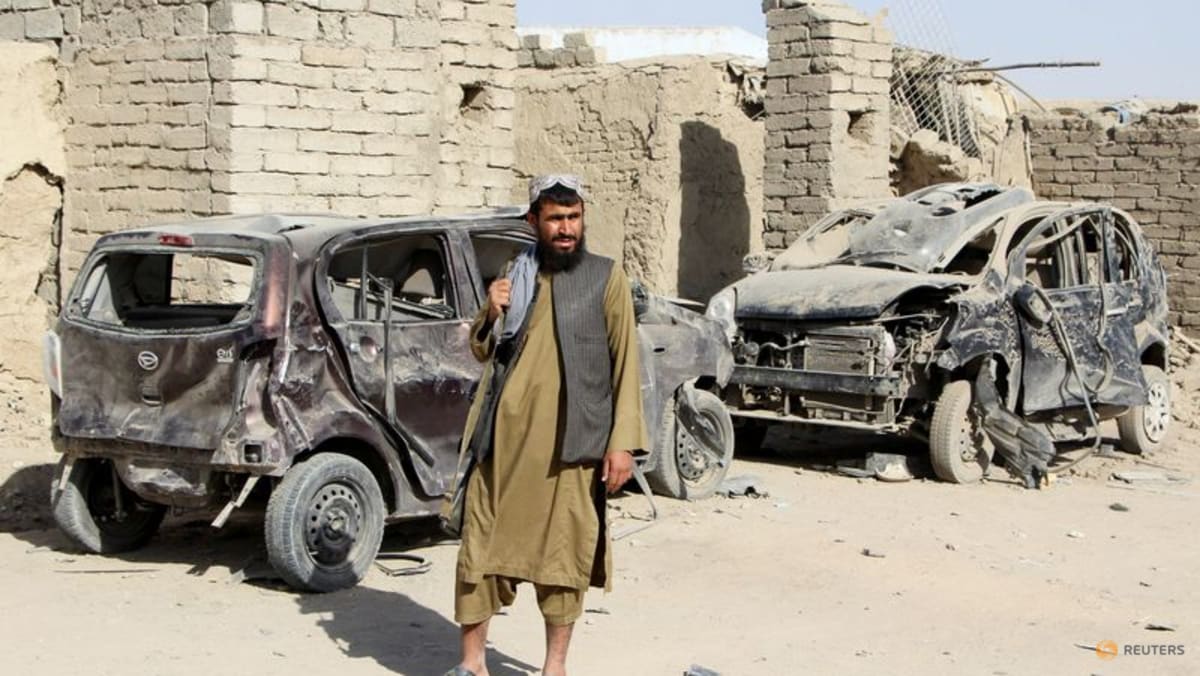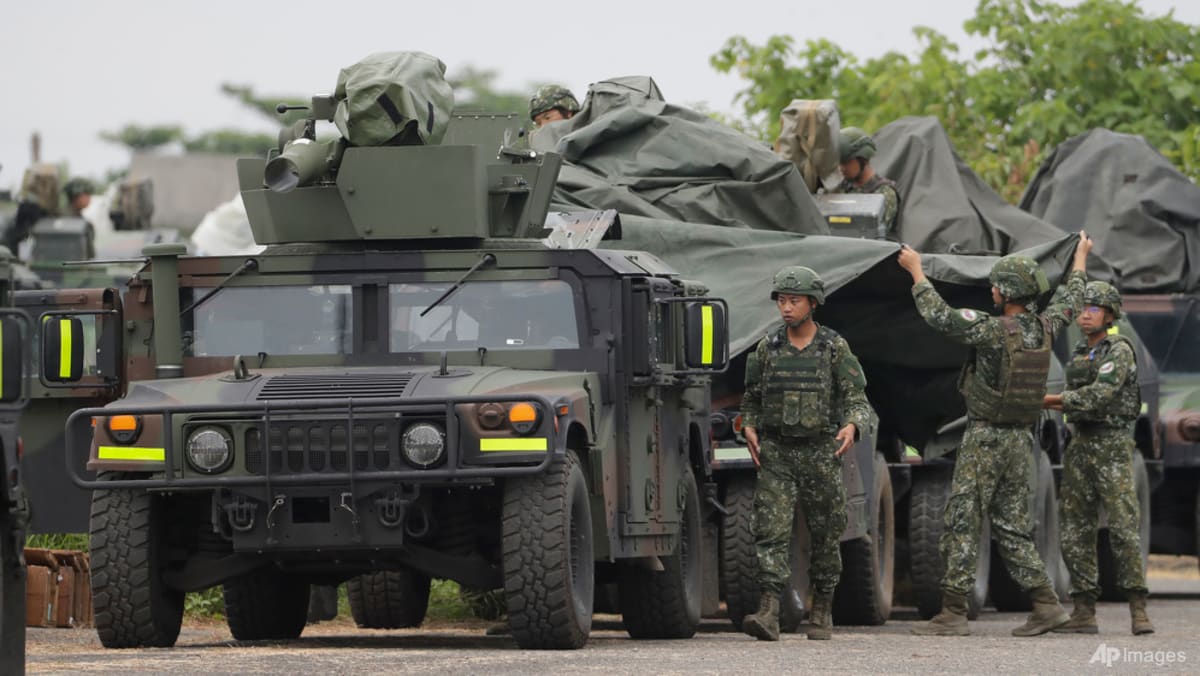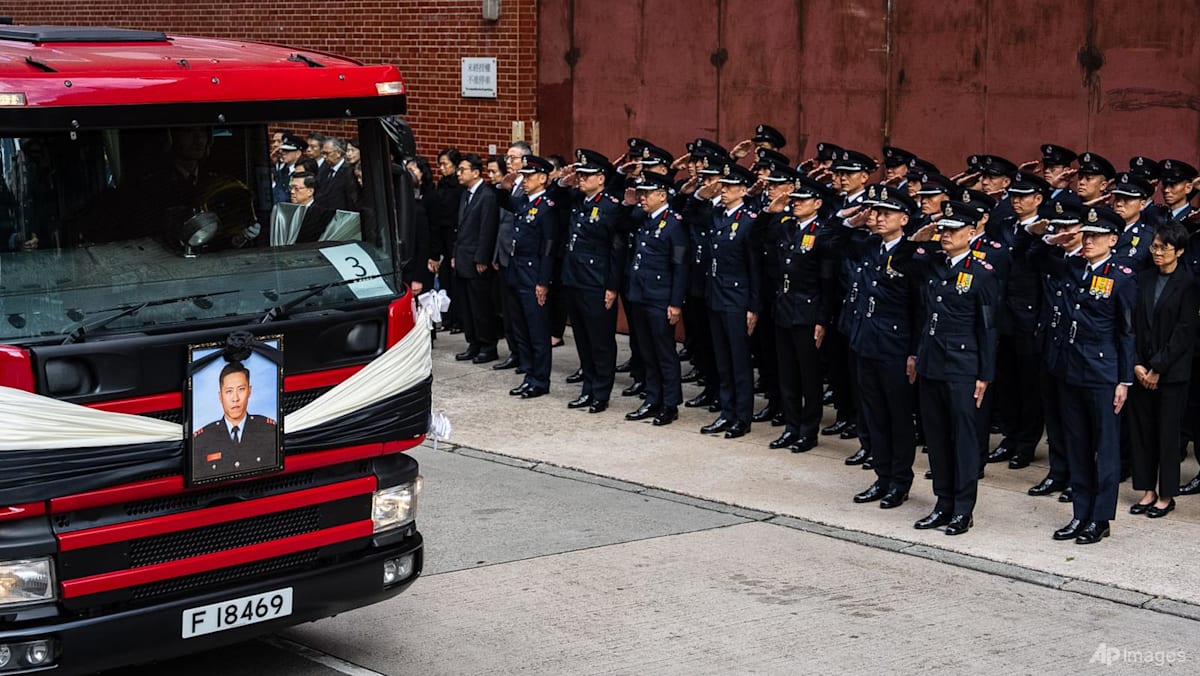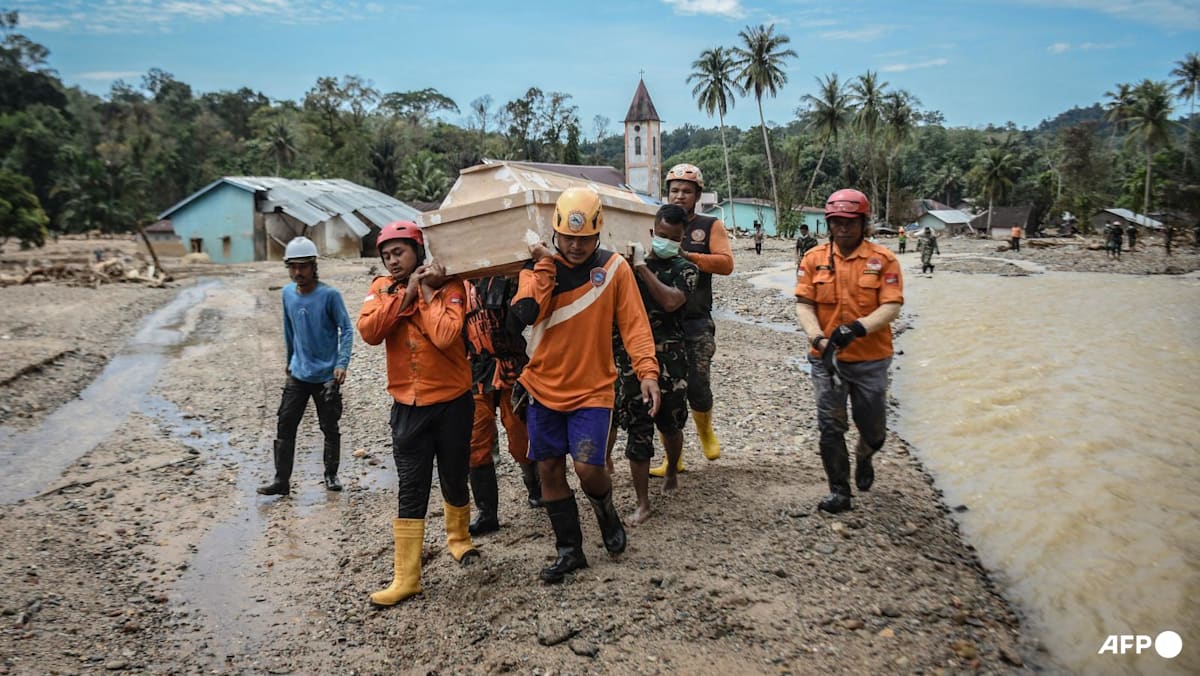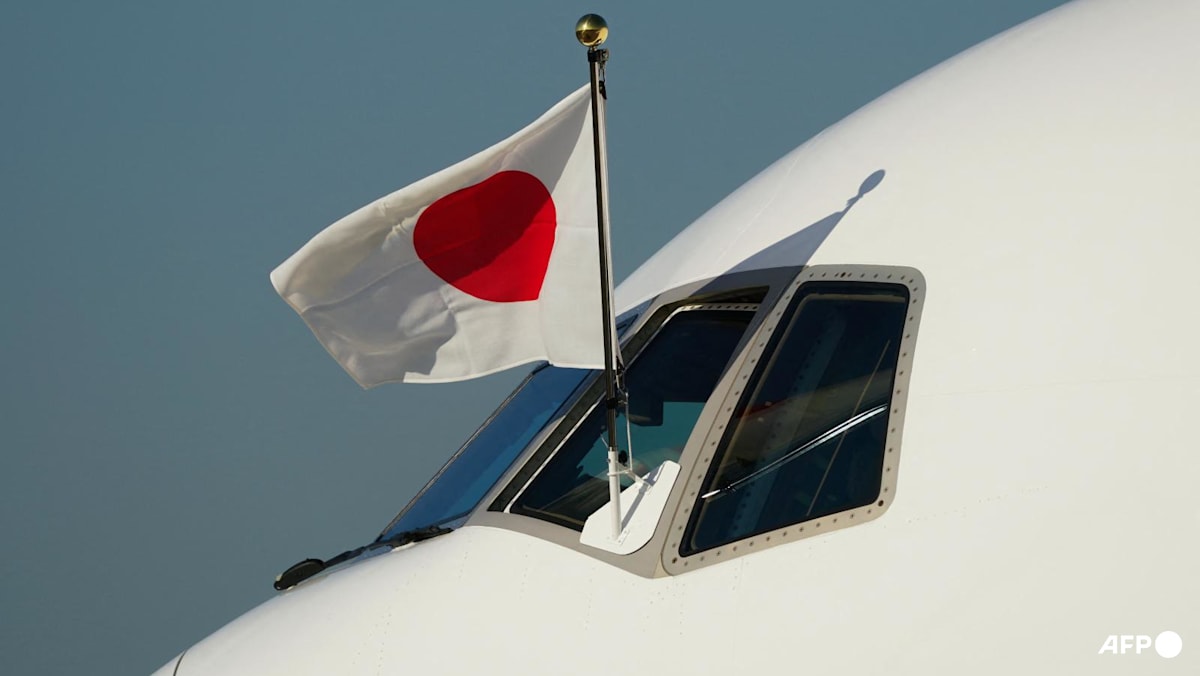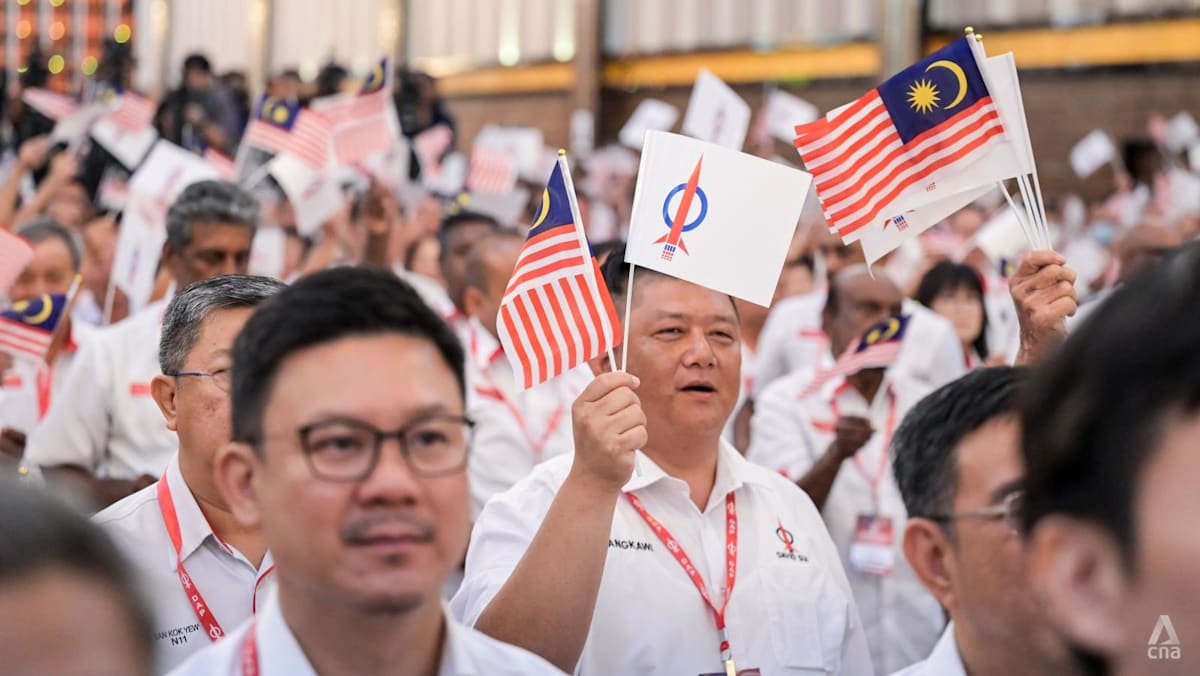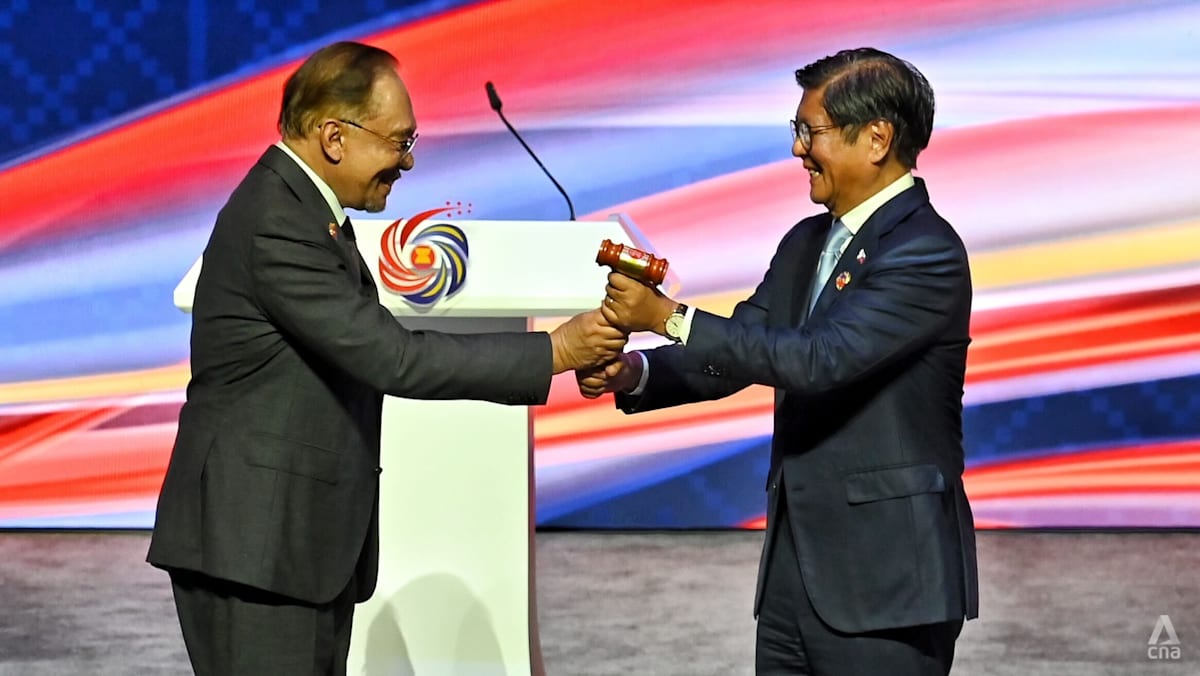Analysis: Being firmer on contentious issues can help ASEAN stay relevant, but first it should take these steps

Associate Professor Chong Ja Ian from the National University of Singapore said ASEAN “demonstrates difficulty” in addressing pressing issues like the ongoing civil war in Myanmar, and China’s occupation, reclamation and militarisation of features in the South China Sea.
“ASEAN’s inability to take initiative on these issues encourages leaders from world powers, including dialogue partners, to de-emphasise the importance of ties with ASEAN even if they pay lip service to ‘ASEAN centrality’,” he said.
In a speech on Tuesday, Singapore Prime Minister Lee Hsien Loong said ASEAN must be proactive and not avoid taking collective positions on issues or risk losing its relevance. This is even as the bloc steps up external engagement in an open and inclusive way amid geopolitical rivalry in the region.
Asked about how ASEAN can achieve this during interview with Singapore media on Thursday, Mr Lee said the bloc has been able to come up with “substantive” agreements and cooperation projects, as well as stances and policies that will help member states and their partners.
“You don’t have single spectacular sexy things, but you will have multiple patient positive things. And by accumulating all this patient work, ASEAN makes a difference and has made a big difference to them,” he added.
SOUTH CHINA SEA DISPUTES
Still, Assoc Prof Chong believes ASEAN can be “clearer and more consistent” in insisting on adhering to the United Nations Convention on the Law of the Sea (UNCLOS) when it comes to handling maritime disputes, including supporting members states under pressure from behaviour inconsistent with UNCLOS.
“This is not siding with any party on existing territorial disputes, but rather insisting on accepted international norms relating to the procedure for handling disputes,” he said.
Dr Alexandra said ASEAN needs to take concrete actions to implement the guidelines it agreed upon to accelerate negotiations on the Code of Conduct (COC) in the South China Sea.
It is hoped that this code could help resolve disputes in the strategic waterway, but negotiations have stalled multiple times.
“ASEAN will have to continue to emphasise that these negotiations should go between China and ASEAN, because we know China has always been trying to make it as a bilateral negotiation,” she said.
“So I think ASEAN should maintain its position that this should actually be between ASEAN and China. There should be some sense of unity among the ASEAN member states. I know it’s certainly not easy.”
Dr Alexandra pointed to a rare statement by Brunei in 2020, when the oil-rich state insisted that specific issues in the South China Sea be addressed bilaterally. This syncs with Beijing’s position, indicating that Brunei is still dependent on Chinese investment.
Economic dependence on China could also be one reason why this year’s chairman statement did not mention China’s new map, the analyst said.
“Some countries are really hesitant to make China angry,” she added, noting that China will make COC negotiations “very complicated”.
“But we have to make a very clear stance on this. And then the only way now is how to really work together to move the needle in terms of the COC negotiations.”
MYANMAR CRISIS
Another issue ASEAN could be firmer on is the Myanmar crisis, with Assoc Prof Chong saying the bloc can take a “tougher stand” on addressing criminality in Myanmar.
“It can show more initiative in addressing financial transactions that support criminality and arms procurement in Myanmar,” he said.
Despite that, Dr Alexandra said ASEAN’s approach to the Myanmar issue presents a valuable lesson on how the bloc can put aside its usual consensus-based method to take a collective stand during times of crisis.
Described as the “ASEAN minus X” formula, it allows two or more ASEAN states to move ahead on economic agreements on the basis that the other members will follow at a later stage.
It has also been used in other areas of cooperation, like when the ASEAN Convention on Counter-Terrorism came into force before its full ratification by all 10 members in 2013.
“There’s a certain lesson learnt with the Myanmar crisis because, in fact, what is happening is ASEAN minus X, because we don’t consider the opinion from the military junta. The leaders just decide what ASEAN should do,” Dr Alexandra said.
At the recent summit, ASEAN agreed to set up a “troika mechanism” comprising the immediate past, current and incoming chairs to tackle the crisis in Myanmar, with the Philippines set to replace the junta-run country as chair in 2026.
This type of ASEAN minus X mechanism might also be useful if, for instance, an open clash affecting regional security occurs in the South China Sea, she said.
“How should we respond? Do we still apply consensus? (If so) we won’t move anywhere,” she added.
REVIEW DECISION-MAKING
Assoc Prof Chong said ASEAN should discuss ways of being more effective in carrying out its existing mandate, instead of adding anything new.
“Movement in this direction should include ways to address dissension and perhaps even disruptiveness by particular member states, regardless of whether they are acting on behalf of themselves or some extra-regional actor,” he said.
Dr Alexandra said ASEAN should also work towards closing the gap between the different levels of economic development among member states, particularly the difference between the maritime states and the sub-Mekong states.
This was acknowledged in this year’s chairman statement, which reiterated a commitment to further promote “equitable and sustainable” development across the ASEAN community by aligning sub-regional growth.
Closing this gap would allow ASEAN to be more united even as major powers enter the region and create smaller groupings aligned in their positions on geopolitical rivalry, Dr Alexandra said.
“Of course, there are still issues between the member states. But if they can put that aside for certain common challenges that they face, I think it will not be easy for these external powers to actually enter into the region and create instability,” she said.
For instance, the US-led Quadrilateral Security Dialogue (Quad) includes Japan, Australia and India, and is – although not stated explicitly – intended to be a bulwark against China’s assertive actions.
This is opposed to the ASEAN-led East Asia Forum, which includes all these states as well as China.
Dr Alexandra asserted that the smaller groups, called “minilaterals”, actually create more division, despite these groups always insisting their aim is for a “stable, prosperous, open environment”.
“They can’t (achieve that aim), because we know who are actually in that groupings,” she said. “Only ASEAN platforms are still consistently pushing for multilateral forums (that are) open and inclusive”.
At the same time, ASEAN should try to show that its multilateral forums are “meaningful and useful” for major powers, by incorporating geopolitical issues beyond things like economic cooperation, Dr Alexandra said.
“That requires ASEAN to rejuvenate (these forums), to make them much more appealing for the major powers,” she added.
A STRONGER ASEAN, OR A WORLD WITHOUT ASEAN?
Dr Alexandra said a more proactive and assertive ASEAN can make a “fairly strong” impact on the current geopolitical landscape, given that the bloc has large populations and strong economic growth.
“I think that tells us that if they really come as a group, it’s quite a strong grouping; it’s quite influential,” she said.
Assoc Prof Chong said a more “active and robust” ASEAN can reduce the severity of major power competition in Southeast Asia by directing the “more intense” aspects of contentious issues away from the region.
“This can limit uncertainties in the region and create conditions more conducive for stability and continued economic growth. Obviously, the grouping is presently very far from being able to achieve such goals,” he said.
If ASEAN continues on its current trajectory, Dr Alexandra said it is “not a far-fetched reality” to imagine a world without ASEAN.
She pointed to how some member states could rethink its participation if, for instance, negotiations on contentious issues like the South China Sea COC do not “move anywhere”.
There are already hints of this with the Philippines, she said, noting that the country recently expanded access for US bases on its territories near the Taiwan Strait and the disputed South China Sea.
Assoc Prof Chong said ASEAN’s declaratory and lowest common denominator approach to pressing regional issues puts it in a passive position.
“If this remains the case, major powers will either circumvent, pressure ASEAN into accepting their preferences, or find alternative arrangements that are more effective as partners,” he added.
“Even ASEAN member states may look at other options to forward cooperation in pursuit of their interests.”
Source: CNA



